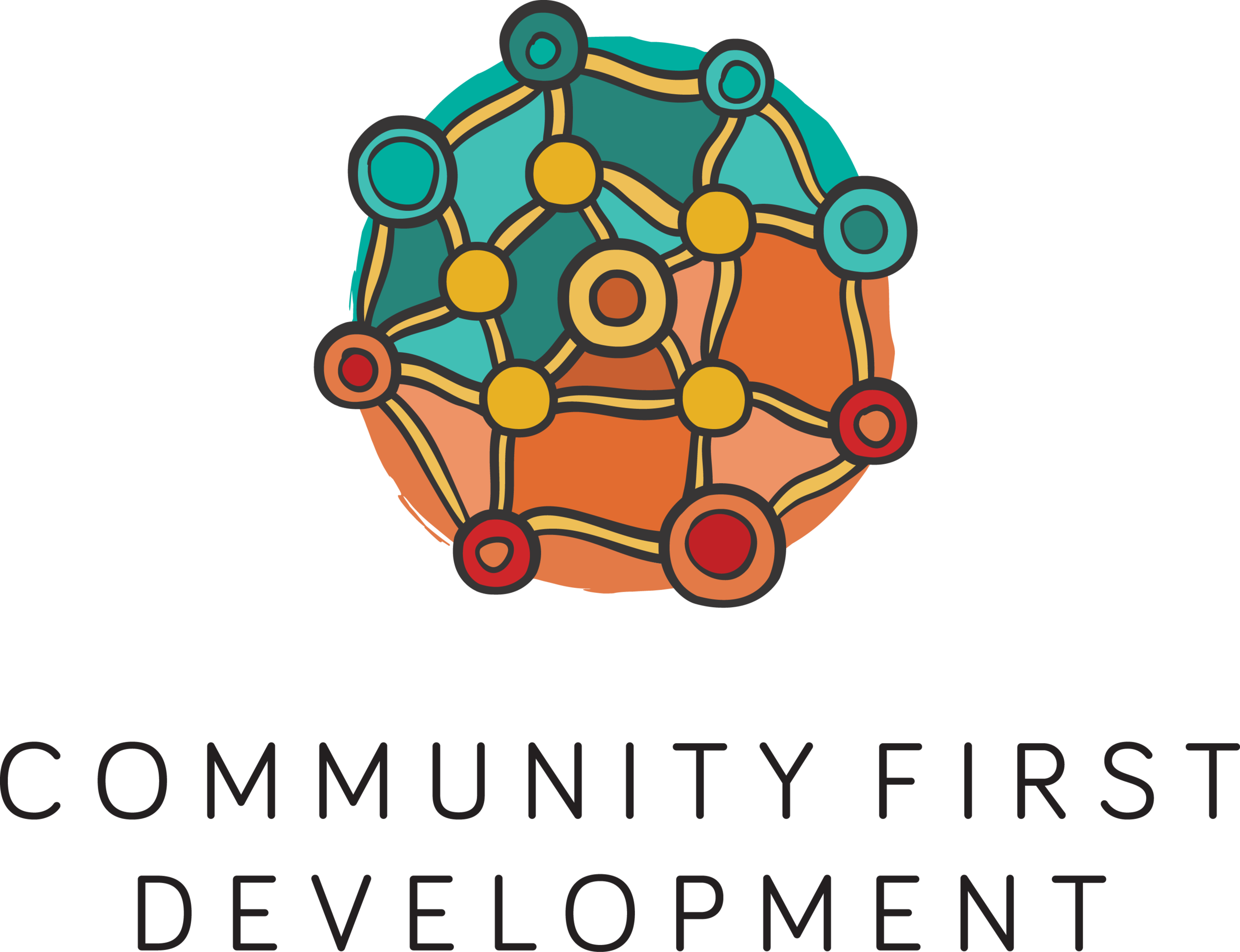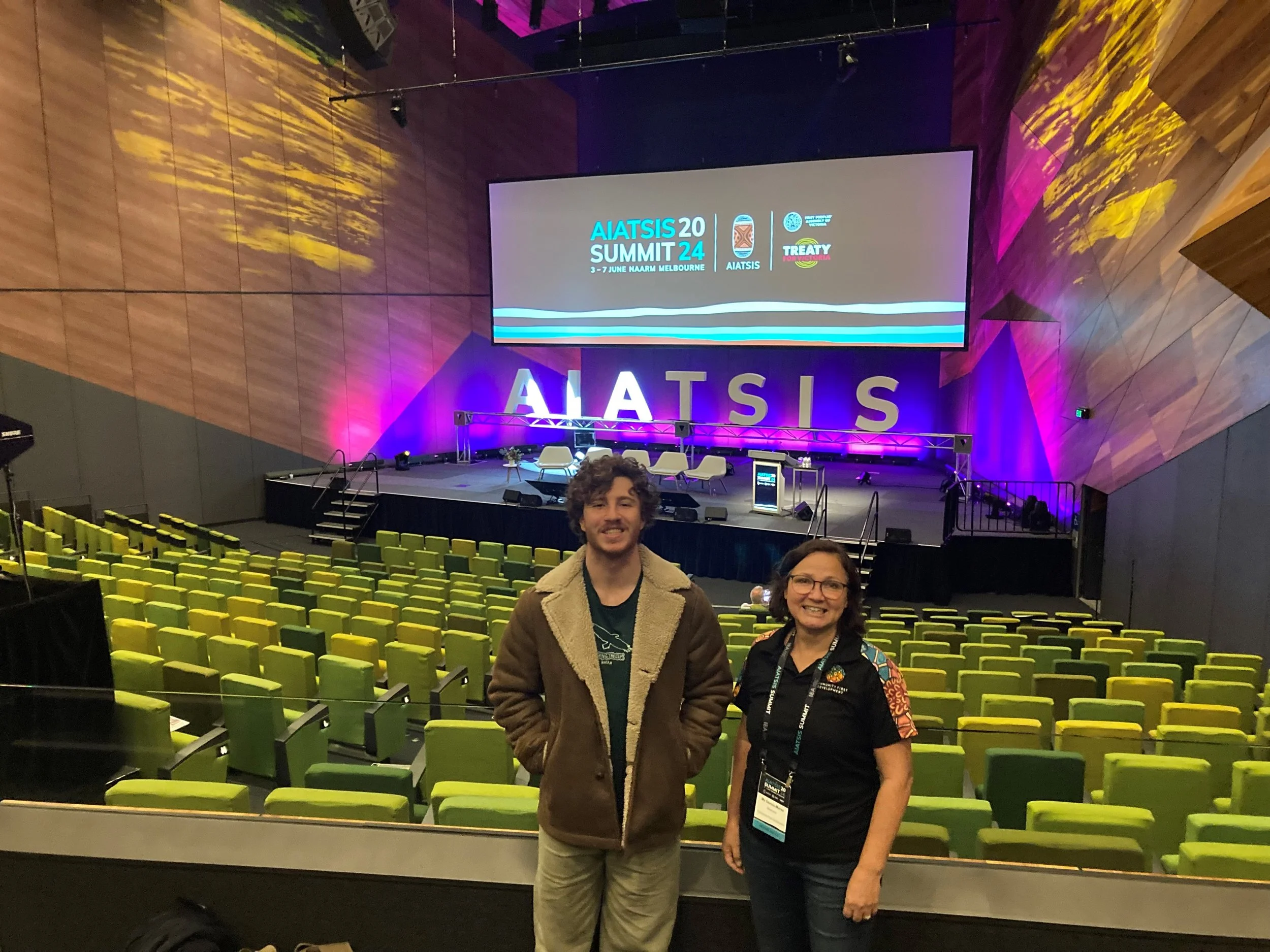AIATSIS Summit: Cultural Aspects of Community Development
Senior Community Development Officer Jacob and Senior Manager Research Donna presented at the AIATSIS Summit.
We recently had the honour of presenting at the AIATSIS 2024 Summit in Naarm (Melbourne). This was a fantastic opportunity to share some exciting insights from our upcoming research paper and showcase how we support First Nations’ communities across Australia.
The AIATSIS Summit is an annual event organised by the Australian Institute of Aboriginal and Torres Strait Islander Studies. It brings together Indigenous leaders, academics, policymakers, and community members to discuss important issues related to Aboriginal and Torres Strait Islander cultures, histories, and knowledge. It’s a place where meaningful conversations and collaborations happen.
What We Shared at the Summit
Our team shared research findings from our 20 years of experience working with First Nations’ communities and businesses focused on community outcomes. We highlighted key lessons on how to monitor and evaluate alongside these enterprises.
Here are some key points we shared:
Cultural Aspects of Community Development:
Cultural identity is essential for community development in First Nations’ communities. Each community has unique cultural practices, beliefs, and values that guide their growth. We also learned it's important to keep strong connections between generations, ensuring the younger ones know and are proud of their stories and culture. By recognising and including these cultural aspects, we make sure our development projects are relevant, respectful, and empowering for the communities involved.
Elders play a crucial role in First Nations’ communities by passing on knowledge and cultural traditions to younger generations. They are the custodians of cultural wisdom and history, ensuring that the community’s values, practices, and stories are preserved and transmitted. This intergenerational transfer of knowledge strengthens the community’s cultural foundation and helps maintain continuity, including within community based enterprises (CBEs).
Intergenerational relationships also provide a framework for younger members to learn from the experiences and wisdom of their Elders. By prioritising intergenerational connections in community development, we support strong cultural identities, younger members can learn from the experiences and wisdom of their Elders. This exchange promotes cultural continuity and resilience, as younger generations are prepared to carry forward the legacy of their ancestors.
2. Values and Family-led Enterprises:
Family-led enterprises are vital for First Nations' community development. These businesses are guided by values and often run by families, focusing not just on economic outcomes but also on cultural and social benefits. The values behind these businesses include community well-being, preserving culture, and maintaining strong family relationships. Supporting these enterprises helps share cultural knowledge and skills across generations, ensuring younger people carry on their Elders' traditions.
By supporting family-led enterprises, we create lasting economic opportunities that fit the community's culture and needs.
3. Wise and Land-based Practice
Wise and land-based practices are central to our community development efforts. This approach respects the deep and diverse connection First Nations’ people have with their land, water, and sky, which shapes their local traditions (knowing and being) and practices (doing). Wise and land-based practices go beyond just the physical place, they are grounded in the cultural and spiritual traditions of the communities. It also highlights the importance of historical knowledge of the communities and their connections to Country, spirit and ceremonies.
By using wise and land-based practices, we support communities to preserve their unique cultural identity and promote sustainable development that fits with their traditional ways of living and understanding the world.
Why This Matters
Our research shows that First Nations’ enterprises aim for more than just economic growth. They focus on making changes that address service gaps, benefit future generations; revitalising culture and community governance, and building community pride. They create safe spaces for employment, education, leadership, and community development, meeting the needs identified by their communities.
To support these unique goals, our evaluation frameworks must be culturally responsive. This helps us understand and showcase the full impact of First Nations’ enterprises on their communities and the broader Australian economy.
The Impact of our Presentation
Presenting at the AIATSIS Summit allowed us to engage with a broader audience and spark important discussions on these topics. We received valuable feedback and interest from various attendees, highlighting the strength of community-led development and the importance of including cultural practices for lasting success. The summit showcased the power of community-led development and the need for culturally grounded practices to achieve sustainable outcomes.
Looking ahead
We are thrilled to be sharing our discussion paper soon! The summit confirmed that we are on the right track with our research. We look forward to discussing our key learnings with community members and seeing if they resonate. If you’re interested in learning more about our work or partnering with us, please explore our website further, connect with our community on social media or contact us.

